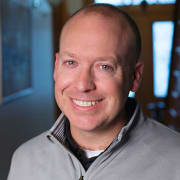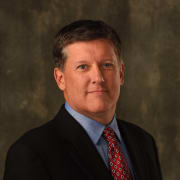Fact or Fiction: An Election Day Is Needed to Determine the LPGA Player of Year

Welcome back to SI Golf’s Fact or Fiction, where one of our panelists' polling site was his local municipal golf course. There's something that we can all agree is great.
Once again, we’re here to debate a series of statements for writers and editors to declare as “Fact” or “Fiction” along with a brief explanation. Responses may also (occasionally) be “Neutral” since there's a lot of gray area in golf.
Do you agree or disagree? Let us know on the SI Golf X account.
Nelly Korda is officially the LPGA Player of the Year, even with the season not yet over, as the award is decided via a points system. This is a better system than a peer vote, which the PGA Tour uses for its Player of the Year.
Bob Harig: FACT. The numbers are the numbers and it takes out any guesswork or bias. I’ve often wondered how much the PGA Tour players study the years of the players they are voting on. Last year is a great example when they picked Scottie Scheffler over Jon Rahm—even though Rahm had a major and four wins while Scheffler had just two wins. (Scheffler did have an amazingly consistent and statistically incredible season).
Jeff Ritter: FICTION. The LPGA system is fair and Korda is completely deserving. But a peer vote builds intrigue, suspense and—I’d like to believe—maybe a splash of in-house drama and bickering among tour pros. In other words, the peer vote creates a better story, and at SI Golf we like good stories.
John Schwarb: FICTION. Tough call. The LPGA Hall of Fame is also based on an ironclad points system with only prolific winners allowed, and I respect how there’s no guesswork or biased selection panels. But debates on HOFs and POYs are part of the fun of sports, in this case so one can argue that Lydia Ko’s season was better with the Women’s British Open title and Olympic gold.
The next edition of TNT’s “The Match” will be later this month featuring celebrities and former athletes outside of golf such as Charles Barkley, Michael Phelps and Bill Murray. These are still worthwhile watches for golf fans in a slow spot on the pro calendars.
Bob Harig: FACT. Always skeptical about watching other athletes play golf but there have been several of these and that suggests they are are popular enough to bring back. And there is always the possibility that someone wants to watch one of these athletes play a different sport, perhaps helping to turn them into a golf fan.
Jeff Ritter: FACT. This isn’t going to replace an NFL Sunday, but credit the organizers for counting to mix and match new celebs and athletes into these made-for-TV events. I’m especially curious to see how Phelps’s competitive fire might burn during a golf match—I don’t think we’ve ever seen him play a round mic’d up.
John Schwarb: NEUTRAL. I’m a Nate Bargatze fan so I might tune in for a few minutes, but these overproduced and commercialized network events are teetering on the edge for me. I can go to YouTube like so many do now and see Bryson, the Bryan Bros, etc., with celebrities too and largely without the commercials.
With the proposed sweeping changes to field sizes and exemptions by the PGA Tour Player Advisory Committee, the current FedEx Fall could be the last chase for top 125 exemptions (the proposal is for the top 100 to be fully exempt starting in 2026). The end of Tour seasons are boosted by playing-for-jobs storylines and it’s sad to lose those with fewer cards to play for.
Bob Harig: FICTION. The story line simply shifts to those vying for the top 100 instead of top 125. And as we are seeing, a player who finishes outside of the top 100 will not be relegated to Siberia. He will still have numerous PGA Tour stars, could go to the KFT Tour or even to the DP World Tour. It’s a tougher, more fierce situation. But it’s not without the ability for someone on the outside to play their way in.
Jeff Ritter: FICTION. The changes will be rough news for players just on the outside of the top 100, but I’m not sure the play-for-your-job storylines ultimately move the needle for fall events. The Tour’s top players have circled the wagons. This is one of the ripple effects.
John Schwarb: FICTION. Like Bob said, finishing outside these Tour-created bubbles aren’t death sentences, just setbacks. A cutthroat Q-School where the winners get full PGA Tour cards and the losers pretty much get nothing is the holy grail of year-end status golf, but that’s long gone.


